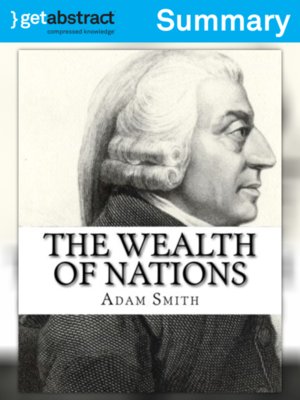
Sign up to save your library
With an OverDrive account, you can save your favorite libraries for at-a-glance information about availability. Find out more about OverDrive accounts.
Find this title in Libby, the library reading app by OverDrive.



Search for a digital library with this title
Title found at these libraries:
| Loading... |
getAbstract Summary: Get the key points from this book in less than 10 minutes.
getAbstract believes that no serious economist can do without this exhaustive work, originally published in five volumes as An Inquiry into the Nature and Causes of the Wealth of Nations. This classic is a pragmatic and accessible milestone in the history of economics. Its author, Adam Smith, is woven into every economics textbook. However, Smith's theories, which today often are recounted mostly in fragments, frequently incorrectly, reveal their entire social and economic innovative power only in context. Smith burst onto the scene at a time when absolutist national states monopolized the world's precious metal reserves and tried to increase their own wealth through stringent export policies. These states were motivated by an entirely new concept about national wealth: that it stemmed from the work of the country's people, not from gold. Based on that idea, economic markets should balance themselves as if guided by an "invisible hand," impelled by each individual's self-interest. The state has to provide only an orderly framework and specific public goods and services. Even though Smith's image of idealized economic and social harmony may have developed a few cracks over the course of time, his ideas have inspired many well-known economists during the past 250 years, including David Ricardo, Vilfredo Pareto and Milton Friedman.
Book Publisher:
CreateSpace







